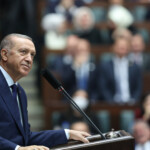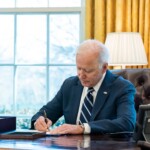The first guest in FTP’s newly launched brief interview series is political scientist Prof Doğu Ergil. A keen observer of Turkish politics and society, Ergil offers deep insight into the mechanisms of the body politic.
What do you expect to happen in the elections? Is there a light at the end of the tunnel? Do you foresee easier or tougher times ahead? Why?
Needless to say, it is going to be a tough competition. I am not saying it is going to be a ‘race’, because impending elections will not take place on equal terms. One side is seated on a bulldozer called the State and does not refrain from using all of its instruments, resources, and powers.
The other side has only soft power, composed of popular discontent and a mutual goal of putting an end to the incumbent power coalition. The opposition is a patchwork of different interests, ideologies and support groups brought together mainly by their mutual interest in ending the one-man regime and restoring parliamentarism.
Unlike this soft power of popular discontent and constitutionalism, the incumbent power coalition controls the official institutions of hard power (the armed forces and the police force), as well as the paramilitary organizations (like SADAT) that it has created. It remains a mystery to me what role these organizations will play during the election process.
Secondly, the government in power has a near monopoly over the media outlets, which is hard to achieve in a pluralistic society consisting of many outlets of communication. This is an indication of its affinity with the ideological givens of the society, and its centralist politics, which border on “totalism.” Through these outlets, the government has a firm control over persuasion and image making—a power that the opposition has limited access to beyond social media (which is often restricted by the government).
Thirdly, with a solid track record and experience in graft and subversion, the current government can manipulate election results at any level of the process through the agents and institutions it has staffed, and tied to itself, during the past two decades.
Another factor that works in favor of the current government that is resolute in holding onto power is the large amount of votes expected from two sources:
First, newly instituted voting stations in Turkish communities abroad. It is estimated that there are 4 million voters living in different corners of the world. Most of them are attracted to the AKP for foaming up the Ottoman grandeur, which makes Turkish emigres feel important in the countries they live in with relatively low status.
Second, The High Electoral Council has declared that 1,3.4 million refugees that have become citizens will have the right vote. Given the anti-refugee stance of the opposition parties, it is expected that these new voters will favor the AKP, which has given them a new life, country and advantages in their direst moments.
Although these hints are rather pessimistic, a significant difference in voting percentages that cannot be thwarted or reduced by the ruling coalition may produce a change in government.
If the difference in votes is close to 10%, government manipulation may not be enough to change the outcome. But if it is half of that ratio, the result may be thwarted, to the advantage of the governing coalition.
So, the question of whether there is “light at the end of the tunnel” is quite relative – and hard to answer.
This year, 2023, is rather remarkable: it is the Turkish Republic’s 100th anniversary. Why has TR tumbled into this massive crisis at every level?
2023 marks the second centennial of the Turkish Republic, but Turkey is not considered to be one of the developed democracies of the world. Its elite reflect the economic and cultural divides of the country and has never been able to transform the nation into a civic society born out of consensus and reconciliation of differences.
Existing economic, social and cultural divides are reflected in politics, making Turkey a contentious society wrought with internal conflict and an “incomplete nation”.
Its rural socio-economic structure was never intended to be completely overhauled, and an agrarian economy transformed into an industrial one. Although subsistence farming has given in to free market economy, it has never become productive enough to allow for capital transfer to more value-added sectors.
So growth was sustained by borrowed money, making Turkey an addict of capital, which it could not produce itself. This drove a wedge between the haves and have-nots, creating a culture of dependency (clientelism) of the lower echelons of the society on the Stateand the ruling elites.
The republican state apparatus, just like its [Ottoman] predecessor, grew in power and prominence, making it an instrument of dominance and control rather than support and service.
Hence, politics became a struggle among cliques to seize the state apparatus and dominate the society.
Whoever got control of the state (not the government per se) controlled, led, and changed society to its own ends. Institutionalization was never fully realized, and the rule of law fell victim to arbitrary rule—and the whims of those in power.
21 years ago, representatives of the people who were not content with what the republican regime offered them expediently utilized public education and the competitive electoral system to secure the majority in the Parliament.
Organized under the banner of the Justice and Development Party (AKP), the traditional, parochial, and communal part of Turkish society was mobilized with the promise of conveying its constituents from the periphery of the system to the center.
After coming to power, cohorts who had been neglected, downtrodden, and culturally marginalized by the so called ‘modern and secular’ echelons of society embarked on a vindictive politics of undoing what has been built since the inception of the republic.
The ongoing attrition of the established institutional network in society gained momentum in the last decade, condemning Turkish society to a ‘middle-income trap’.
A large portion of Turkish society is now living below the subsistence level. The average citizen has no high school diploma, and few have professions or have received professional education.
The political vocation that is called conservatism in the West is traditionalism in Turkey—composed of communalism, parochialism, and religiosity as in many countries in the region, hence it has no affinity with modern values, democracy or rule of law.
Conservatism in this sense upholds pre-modern values and social organizations that hinder development and smooth relations with the rest of the World.
For a stable and peaceful Turkey, what do you see as the solution for its problems, given the culture, demographic changes, and global commotion? Any suggestions?
For a stable Turkey, it is imperative to build the economic foundations of a democratic society. This means production of capital in lucrative sectors with a competitive edge in Turkey’s favor. First of all, the idle and relatively unproductive agrarian economy that has lost most of its vitality has to be rekindled so that it can support a growing industry.
Industry must be planned, supported, and brought up to par with its international counterparts. Japan, South Korea and China have done it. Turkey’s ruling elite never undertook such a colossal task.
The country’s political and bureaucratic cadres must understand what is transpiring in the world; try to upgrade the country’s standards to be a part of the world; develop partnerships with other countries and global organizations at all levels.
At the domestic level, the country’s historical givens—such as its cultural diversity—has to be acknowledged, not denied or suppressed as before. Pluralism is a social reality and must find its way to governance and become ingrained in a political culture that must value coexistence and mutual respect.
In short, what has been done in the name of security and nation-building has to be somewhat reversed to build a developed and democratic country with higher living and political standards.
Doğu Ergil is a professor of political science, sociology and political economy. He received his doctorate in sociology, political science and political economy at the State University of New York. He taught at the London School of Economics as a guest scholar. Ergil has spent most of his academic career at Ankara University in the Faculty of Political Sciences. He served as president of the Foundation for the Study of Social Problems (TOSAV) between 1997 and 1999. Ergil has published 30 books in Turkish and foreign languages, as well as articles and field studies in various languages.


